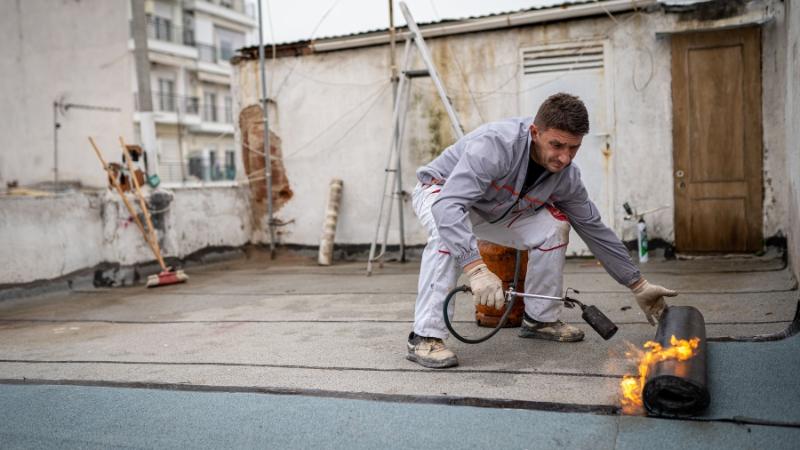Hospital Waterproofing Specialists in Singapore

Introduction
Hospitals in Singapore are critical facilities that require strict maintenance standards to ensure safety, hygiene, and uninterrupted healthcare services. One often-overlooked aspect of hospital maintenance is waterproofing. Water leaks, damp walls, and moisture infiltration can compromise structural integrity, damage medical equipment, and create unsanitary conditions that pose health risks to patients and staff.
Engaging a Waterproofing Specialist in Singapore is essential for hospital management to protect infrastructure, maintain operational efficiency, and uphold health standards. Specialists use advanced materials and techniques to provide long-term waterproofing solutions tailored to hospital environments. This article explores the importance of hospital waterproofing, common challenges, solutions, materials, and best practices.
Importance of Waterproofing in Hospitals
Preserving Structural Integrity
Hospitals are exposed to constant water usage, rain, and high humidity. Waterproofing prevents cracks, concrete spalling, and corrosion of steel reinforcements, preserving the building’s structural stability.
Protecting Equipment and Sensitive Areas
Hospitals contain expensive medical equipment, laboratories, and storage areas. Water infiltration can damage these assets, leading to operational disruptions and financial losses.
Ensuring Hygiene and Safety
Moist environments promote mold and bacteria growth, which can compromise patient safety. Waterproofing minimizes these risks, maintaining a sterile and safe environment.
Reducing Maintenance Costs
Proactive waterproofing reduces the frequency of repairs and prevents extensive damage, saving time and resources for hospital management.
Compliance with Regulations
Hospitals must comply with health and safety regulations. Proper waterproofing ensures adherence to building codes and hygiene standards.
Common Water-Related Challenges in Hospitals
-
Roof leaks affecting patient wards or operating theaters
-
Damp walls and ceilings in corridors and waiting areas
-
Basement and underground parking water seepage
-
Moisture infiltration in laboratories and storage rooms
-
Leaks in bathrooms, kitchens, and utility areas
-
Flooding risks during heavy rainfall
Techniques Used by Hospital Waterproofing Specialists
Roof and Terrace Waterproofing
Roofs are exposed to heavy rain and UV radiation. Specialists use liquid-applied membranes, polyurethane coatings, or sheet membranes to prevent leaks and water damage.
Applications:
-
Flat roofs above patient wards
-
Rooftop HVAC areas
-
Terrace gardens
Basement and Foundation Waterproofing
Hospital basements, including parking and storage areas, are vulnerable to groundwater seepage. Exterior and interior waterproofing solutions prevent water entry.
Applications:
-
Underground car parks
-
Storage areas for medical supplies
-
Foundation walls
Crack and Joint Sealing
Cracks in walls, floors, or expansion joints allow water infiltration. Epoxy or polyurethane injections seal these points and restore structural integrity.
Applications:
-
Concrete walls in patient areas
-
Expansion joints in service corridors
-
Floors and foundation slabs
Liquid-Applied Membranes
Flexible liquid membranes create a seamless barrier against water infiltration, ideal for irregular surfaces or areas with minor structural movement.
Applications:
-
Wet process areas
-
Utility rooms
-
Bathrooms and kitchens
Sheet Membranes
Sheet membranes offer uniform coverage for large hospital surfaces, ensuring effective waterproofing.
Applications:
-
Roof decks
-
Podiums and terraces
-
Large utility and storage areas
Cementitious Coatings
Cement-based coatings provide a durable water-resistant layer suitable for concrete surfaces.
Applications:
-
Floors and walls in wet areas
-
Retaining walls
-
Underground facilities
Drainage and Water Management Systems
Specialists install drains, sump pumps, and surface slope adjustments to manage water accumulation and prevent flooding.
Applications:
-
Basements and car parks
-
Outdoor utility areas
-
Emergency exit pathways
Materials Commonly Used
-
Epoxy and polyurethane injection materials
-
Liquid-applied membranes
-
Cementitious waterproof coatings
-
Sheet membranes (PVC, bitumen)
-
Drainage systems and sump pumps
A Waterproofing Specialist in Singapore selects materials based on the hospital’s specific requirements, water exposure, and structural needs.
Benefits of Hiring a Hospital Waterproofing Specialist
Expertise and Assessment
Specialists can identify hidden infiltration points and recommend effective, customized solutions for complex hospital environments.
Long-Term Protection
Professional waterproofing prevents recurring leaks, structural deterioration, and mold growth, ensuring durability and operational continuity.
Health and Safety Compliance
Waterproofing maintains sterile, hygienic conditions, reducing risks for patients, staff, and visitors.
Cost and Time Efficiency
Preventive waterproofing minimizes repair costs and operational disruptions caused by water damage.
Tailored Solutions
Every hospital is unique. Specialists customize waterproofing strategies for patient wards, operating theaters, laboratories, utility rooms, and outdoor areas.
Maintenance and Preventive Measures
Regular Inspections
Routine checks for leaks, damp spots, and drainage performance help detect issues early.
Timely Repairs
Immediate attention to minor cracks, damaged coatings, or faulty drainage prevents extensive water damage.
Drainage Management
Ensure that gutters, drains, and sump pumps are functional and unobstructed to prevent water accumulation.
Seasonal Preparation
Inspect roofs, terraces, and basements before and after heavy rainfall to minimize leakage risk.
Professional Follow-Up
Periodic evaluation by a Waterproofing Specialist in Singapore ensures waterproofing systems remain effective and identifies emerging issues.
Common Misconceptions
“DIY Waterproofing Is Enough”
Temporary fixes may provide short-term relief, but only professional solutions ensure long-lasting protection in sensitive hospital environments.
“Waterproofing Only Matters for Roofs”
Hospitals require comprehensive waterproofing, including floors, walls, joints, basements, and wet areas.
“Once Waterproofed, No Maintenance Is Needed”
Even professionally applied systems require inspections and maintenance to remain fully effective.
Conclusion
Hospitals in Singapore face unique challenges due to water exposure, sensitive equipment, and hygiene requirements. Water infiltration can lead to structural damage, operational disruptions, and health hazards.
Hiring a Waterproofing Specialist in Singapore provides advanced solutions using techniques such as roof and terrace waterproofing, basement and foundation protection, crack and joint sealing, liquid-applied membranes, sheet membranes, cementitious coatings, and drainage systems. Specialists select materials and methods tailored to each hospital’s needs, ensuring long-term durability, safety, and operational efficiency.
Investing in professional hospital waterproofing safeguards patient safety, maintains facility standards, and protects structural integrity. For hospital management, partnering with a trusted waterproofing specialist ensures water-resistant, safe, and hygienic healthcare facilities for years to come.
- Art
- Causes
- Crafts
- Dance
- Drinks
- Film
- Fitness
- Food
- Παιχνίδια
- Gardening
- Health
- Κεντρική Σελίδα
- Literature
- Music
- Networking
- άλλο
- Party
- Religion
- Shopping
- Sports
- Theater
- Wellness


